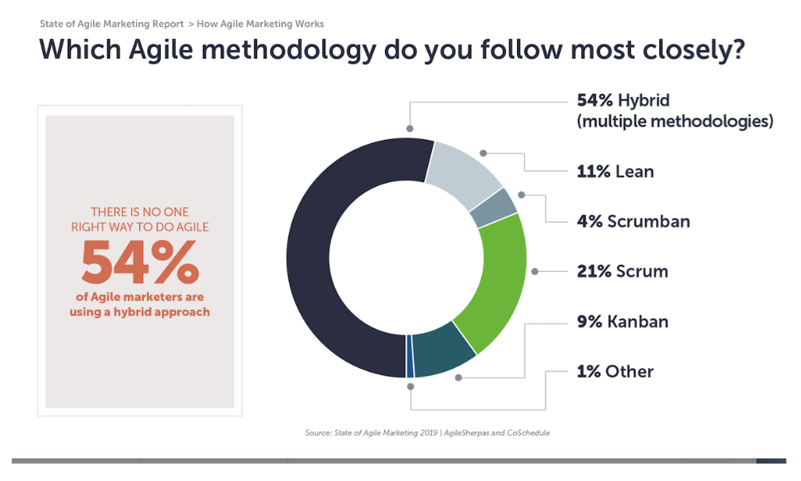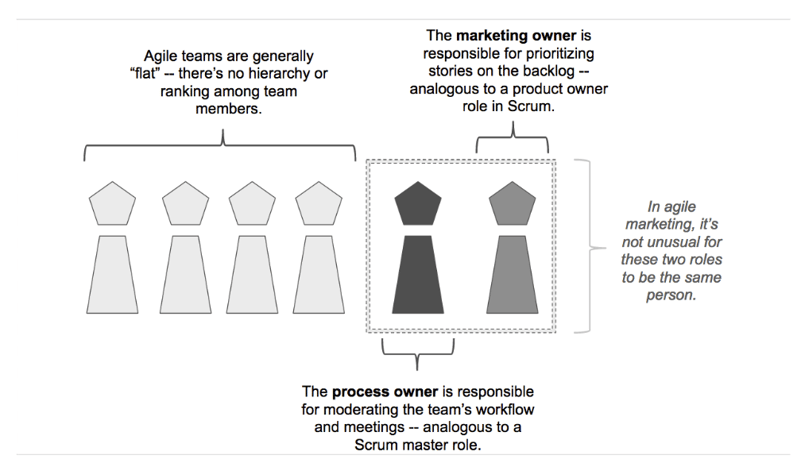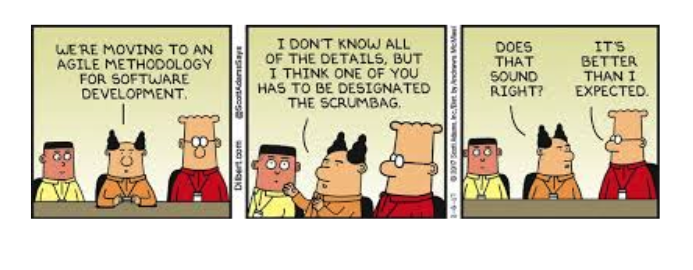-
- marketing agility
- Teams
- Organizations
- Education
- enterprise
- Articles
- Individuals
- Transformation
- Solution
- Leadership
- Getting Started
- business agility
- agile management
- going agile
- Frameworks
- agile mindset
- Agile Marketing Tools
- agile marketing journey
- organizational alignment
- Agile Marketers
- People
- Selection
- (Featured Posts)
- strategy
- agile journey
- Metrics and Data
- Kanban
- Resources
- Why Agile Marketing
- agile project management
- self-managing team
- Meetings
- agile adoption
- scaled agile marketing
- tactics
- Scrum
- scaled agile
- AI
- agile marketing training
- agile takeaways
- Agile Meetings
- agile coach
- enterprise marketing agility
- Agile Leadership
- Scrumban
- state of agile marketing
- team empowerment
- agile marketing mindset
- agile marketing planning
- agile plan
- Individual
- Intermediate
- Team
- Videos
- kanban board
- Agile Marketing Terms
- agile marketing
- agile transformation
- traditional marketing
- FAQ
- agile teams
- Agile Marketing Glossary
- CoE
- agile
- agile marketer
- agile marketing case study
- agile marketing coaching
- agile marketing leaders
- agile marketing methodologies
- agile marketing metrics
- agile pilot
- agile sales
- agile team
- agile work breakdown
- cycle time
- employee satisfaction
- marketing value stream
- marketing-analytics
- remote teams
- sprints
- throughput
- work breakdown structure
- News
- Scrumban
- agile brand
- agile marketing books
- agile marketing pilot
- agile marketing transformation
- agile review process
- agile team charter
- cost of delay
- hybrid framework
- pdca
- remote working
- scrum master
- stable agile teams
- startups
- team charter
- team morale
- user story
- value stream mapping
- visual workflow

We recently started an Agile transformation with a large banking institution who began their Agile efforts by hiring a full time Scrum Master. I was expressing surprise at this move to my husband. He has a degree in computer science and has spent his whole professional life on Agile teams, and I was shocked at his response:
“I don’t think anybody really needs a Scrum Master.”
At once, I began looking around nervously for the Scrum police to come drag him off. But, when that didn’t happen, I realized what a big deal this statement was.
The assumption by many coaches who’ve spent a lot of their time working with software teams is that the Scrum Master role is crucial and non-negotiable.
But in fact many Agile marketing teams simply don’t need a Scrum Master as that role has been implemented in the software world.
Here’s why a traditional Scrum Master probably shouldn’t be on your Agile marketing hiring list, and role/title/characteristics you should be hunting for instead.
Agile is Not Scrum. Neither is Agile Marketing.
The reasons the Scrum Master role was created within the Scrum framework are valid. The Scrum Alliance outlines their responsibilities like this:
- Clearing obstacles
- Establishing an environment where the team can be effective
- Addressing team dynamics
- Ensuring a good relationship between the team and product owner as well as others outside the team
- Protecting the team from outside interruptions and distractions.
Those are all good things, but the problem is the title. A Scrum Master is, by definition, a master of the Scrum way of getting work done. A recent article about this role inside the Agile marketing world explicitly argued that trying to recruit a different person to take on this role isn’t wise because they won’t have “a deep understanding of Scrum.” But Agile is not just Scrum, especially not inside marketing. Agile marketing teams are more than twice as likely to use a hybrid as they are to use Scrum, according to the most recent data. 
So having someone whose title ties them explicitly to Scrum (and expects “deep expertise” in this area) isn’t a great idea. When the team begins to move toward a more hybrid framework (as it almost inevitably will), the Scrum Master may feel like they’ve failed, or even that their job is at risk.
Agile Lead Over Agile Marketing Scrum Master
You can still get many of the benefits of the Scrum Master role without hiring someone with that title. You’ll probably need to search a little harder, but it’s definitely worth it. Things you’ll want in your Agile Lead for Agile marketing:
- Experience/expertise in multiple Agile frameworks (not just Scrum).
- Aptitude for managing interpersonal relationships, so they can negotiate interactions within the team as well as with external stakeholders.
- Some operations or process nerdiness, which will serve them well as they help the team work through bottlenecks, deal with software and/or kanban board design, etc.
Things you DON’T want in your Agile Lead:
- Exclusive commitment to Scrum. If they ever say something like, “If Scrum isn’t working we must be doing it wrong,” you’ve got the wrong person.
- A former middle manager who’s accustomed to dictating the daily activities of people on the team.
- A super traditional project manager who lives and dies by deadlines and Gantt charts.
Hybrid Roles for Agile Marketing
Of course, when given the opportunity to hire many Agile marketing departments choose to expand their crossfunctional capabilities by hiring a new t-shaped marketer. The reality is it’s a big ask to permanently devote a full time position to only supporting agility. So instead you can get the benefits of the Scrum Master role by folding it into another leadership role.
In the hybrid framework I cover in my new book, Mastering Marketing Agility, I call this a Team Lead. It typically combines the support of agility and the strategic prioritization of work into one person’s responsibilities.
This solves for the “we don’t need a Scrum Master anyway” attitude that my husband expressed, and doesn’t require a dedicated FTE. If you do take this approach, however, do NOT try to also have this person execute work items as part of the team’s daily activities. It’s impossible for one person to lead the team in their use of Agile principles and practices, liaise with stakeholders to ensure the team is doing the right work at the right time, AND get their own work done within the team.
So just don’t do it.
Agile Coaches for Multiple Agile Marketing Teams
You may also find it easier to gain the Agile support you need by hiring someone who acts more like an Agile Coach than a Scrum Master. At its most basic level the Agile Coach role supports multiple teams, while a Scrum Master serves only one. 
Image source: Hacking Marketing by Scott Brinker
So if you’re a larger marketing organization you might want to bring on a single Agile coach to help many teams simultaneously (if you do that, buy them this book ASAP). You can’t, however, expect the same level of daily attention from an Agile Coach as you’d get from a Scrum Master. They can’t lead eight daily standups every single day.
Make sure the teams they’re supporting have the right expectations. Further, that they can handle the day-to-day activities like the self-organizing team they ought to be. You can also outsource the Agile coach role to an external group like AgileSherpas for the first 8-12 months of your transformation. (We do this with many of our clients. Give us a shout if you’d like to chat about it.)
Scrum Master Not Required
At the end of the day, there will be some Agile marketing teams who benefit from the adoption of a traditional Scrum Master. I know a few personally who’ve gotten great support from strong people in this role.
For most Agile marketing departments, however, there’s greater benefit in looking for a more flexible option. As with most aspects of Agile marketing, we need to understand why the role exists and then adapt it as needed to meet our unique needs. How about you? Do you have a full time Scrum Master on your Agile marketing team? If not, do you wish you did?
Topics discussed

Andrea Fryrear is a co-founder of AgileSherpas and oversees training, coaching, and consulting efforts for enterprise Agile marketing transformations.
Improve your Marketing Ops every week
Subscribe to our blog to get insights sent directly to your inbox.


